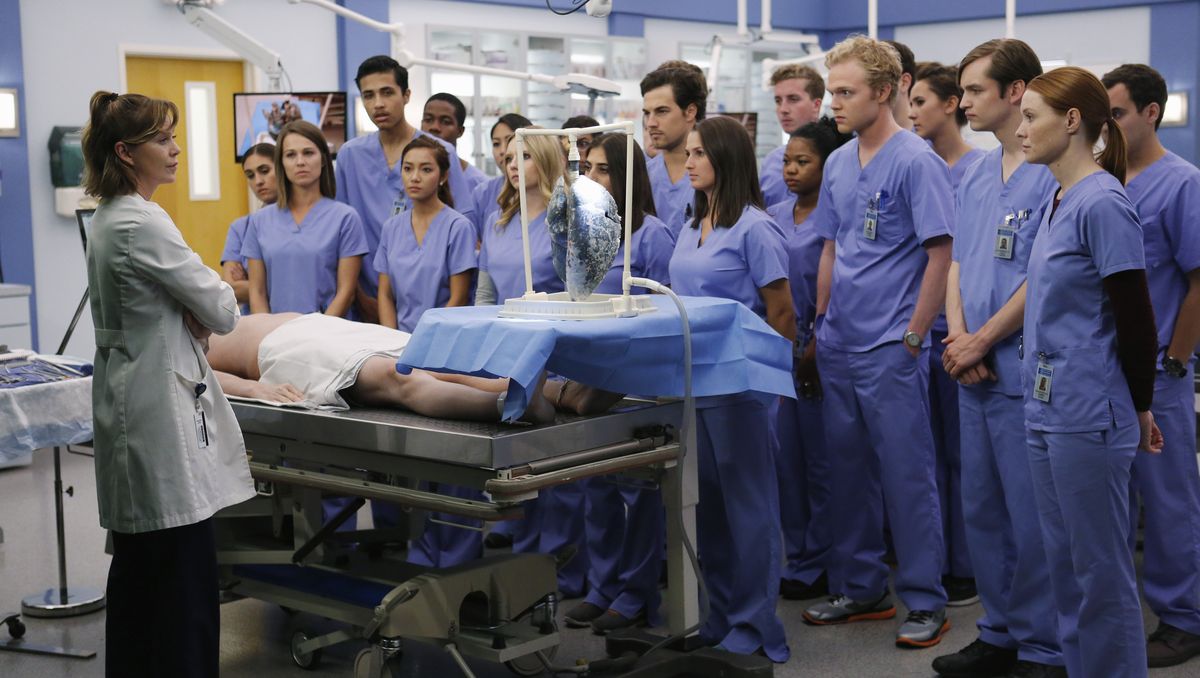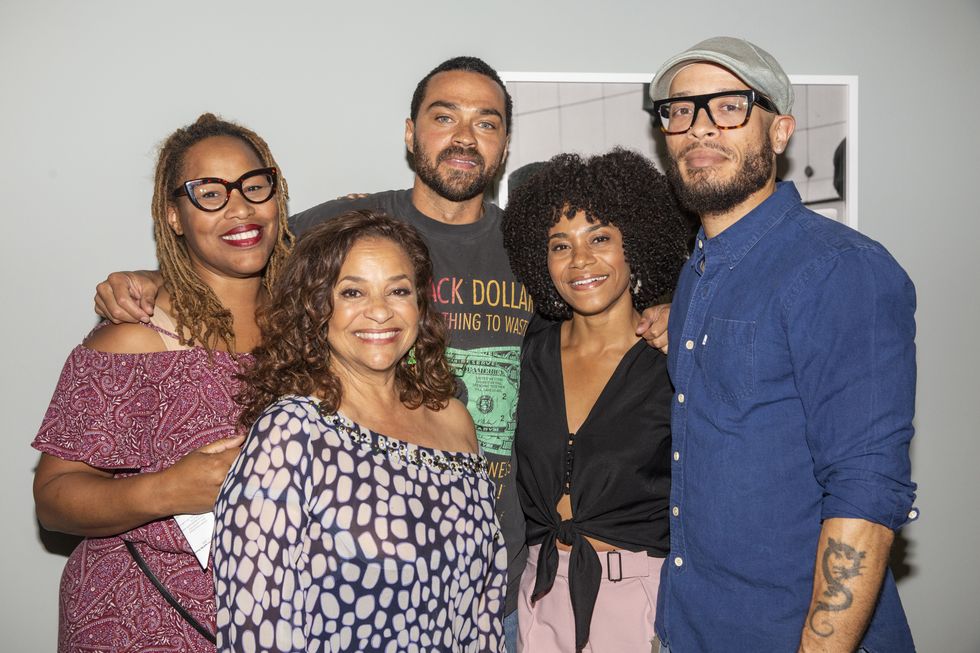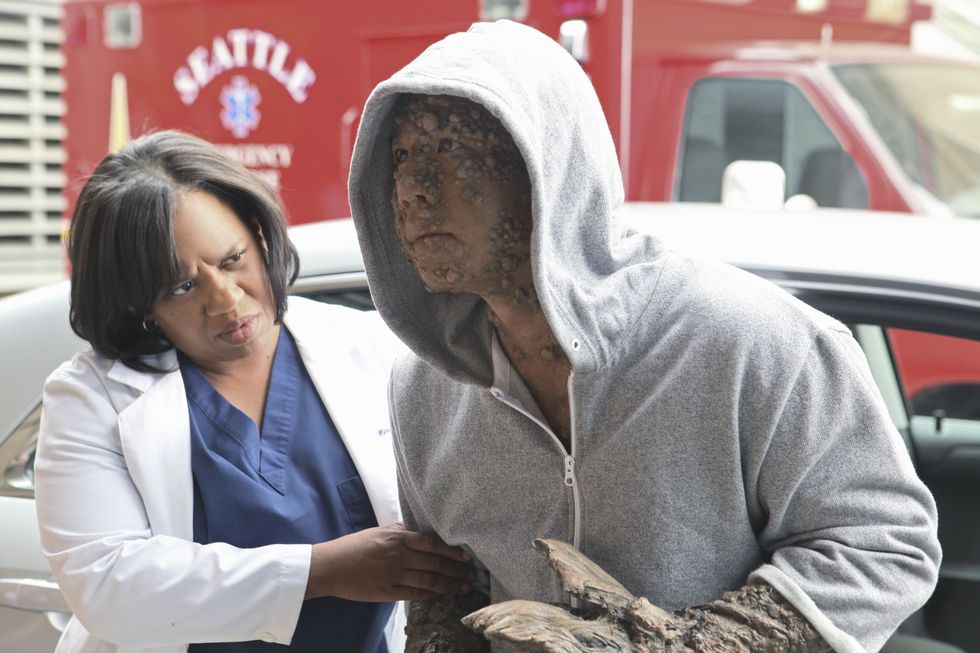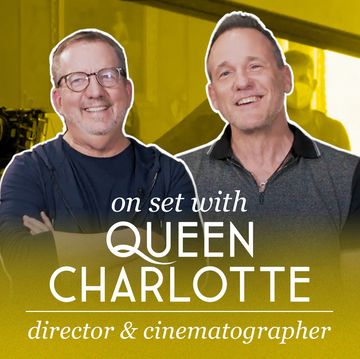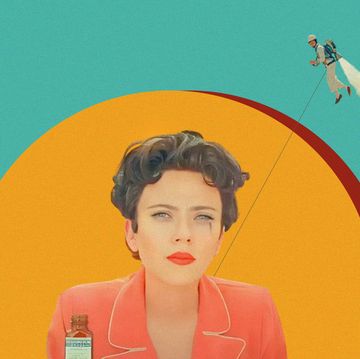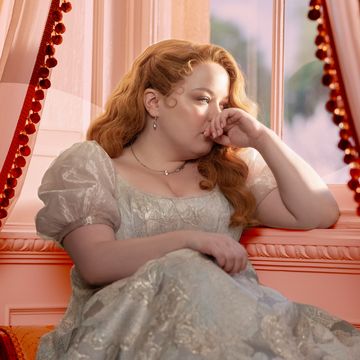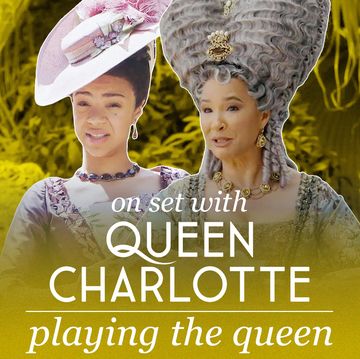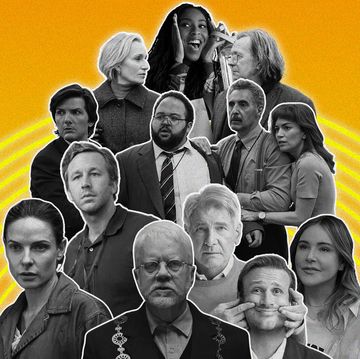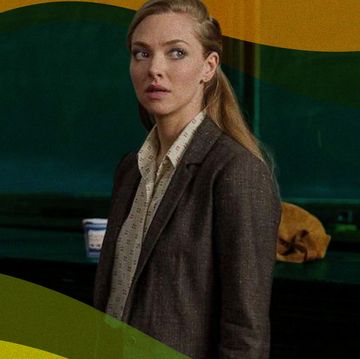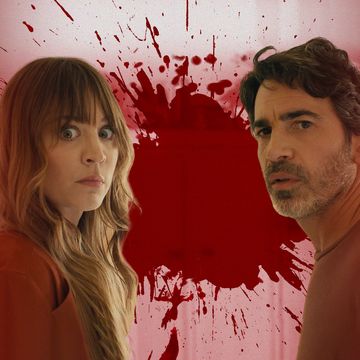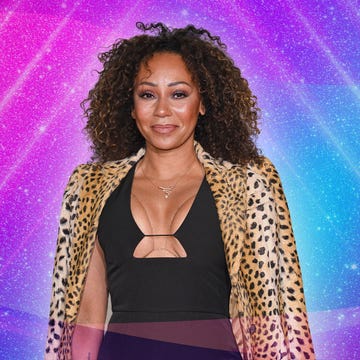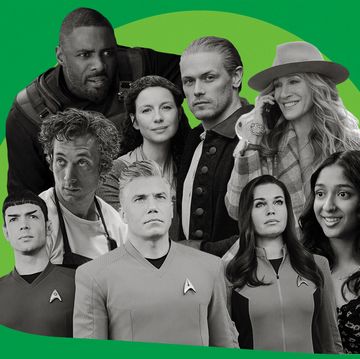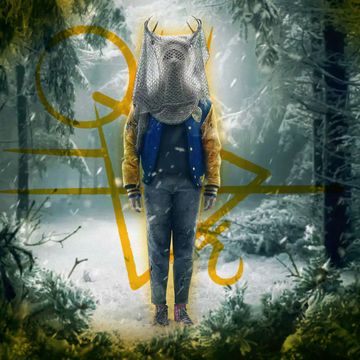On Feb. 28, the 15th episode of Grey's Anatomy's 15th season will officially make it the longest running primetime medical drama in television history. As we build up to this monumental TV moment we've asked five writers, all of them Grey's groupies since the first season, in 2005, to tell Shondaland.com why — from Meredith to the medical to the all-embracing depiction of real people to the sisterhood — the seminal drama series has meant so much to them over 332 (and counting!) episodes.
For 10 years, before I ever worked on Grey's Anatomy, I was a fan. And not just a "Oh, hey, I love that show" kind of a fan. I was a die hard, turn off all the phones, watch it live, commercials and all, in my pajamas with my best friend Susan kind of fan. I was in graduate school, devouring and memorizing every episode like it was my job – before it was my actual job. And, like the majority of Grey's fans, I spent most of the hour vacillating between OMG-worthy hook-ups/break-ups/make-ups and There's No Way That Medical Case Could ACTUALLY HAPPEN.
Five seasons ago, when I started working here, I learned just how amazingly, terrifyingly true the medicine is on Grey's Anatomy — and how hard the medical team works to make sure what you see on screen can (and has) happened in real life.
Now, I'm not going to lie and pretend I'm a big fancy doctor who knows big fancy doctor things. (I am, in fact, the only person in my family whose title does not begin with "Dr.") Which is why Grey's is staffed with brilliant MD's that we in the Writers' Room call "Team Medical." Led by executive producer and 15-season Grey's veteran Zoanne Clack, executive producer Fred Einesman, a medical researcher, and a host of amazing surgical fellows, they help turn news stories, pieces from medical journals, and tales about our aunt's neighbor's cousin into (sometimes literal) heart-pounding medical stories you see every episode.
After each writer goes off to create his or her draft (sometimes writing the words "Push 1cc of Medical. Medical the Medical! STAT!" when we are at a loss for terminology) Team Medical translates this into…well…actual real-life medicine. And then the brilliant on-set staff lead by former OR nurse, 15-season Grey's veteran, and forever genius Linda Klein makes what we've put on the page come to life, including peppering our ORs with real-life nurses and doctors to add remarkable detail.
I sat down with the Zoanne Clack, who began her career as an emergency room physician before becoming a television writer for a more in-depth look at how Grey's Anatomy makes the medical magic happen:
Elisabeth R. Finch: You often make the Chinatown joke: "I'm a doctor, I'm a writer, I'm a doctor, I'm a writer…" how did you make the transition from doctor to writer?
Zoanne Clack: Before my writing career, I was an emergency medicine physician with an MD with a master's in public health in behavioral sciences. My first writing job was on a show called Presidio Med, which I got based on my doctor status with only one script under my belt. I got an agent from being on the show and then proceeded to write a number of scripts and a play, and then I interviewed for a position at Grey's Anatomy, which I've been on since the first season.
EF: For people outside of the Writers' Room, can you walk us through what your job is when it comes to translating medical ideas that come up in the room to the screen?
ZC: I take ideas from the room and turn them into medical stories that, hopefully, seamlessly weave into the character stories we're trying to tell. I basically oversee how the medicine is portrayed, and try to make it as exciting and/or heartbreaking as possible. "Team Medical" tries to find new and exciting twists and one-in-a-million cases to make stories that are cooked up in the room work on a realistic level. Also, the organization Hollywood, Health & Society will sometimes bring in experts and patients that give us stories on public health issues that are important out there. But whatever we're working on, all of the writers are very aware of the impact we have on society, and take this responsibility very seriously.
EF: A lot of times people watch the show and think: “There’s no way that can be real…” What do you say to that?
ZC: So much goes into the breaking of every medical story that people would be surprised how much of it is real. When we discuss cases with experts, they will often say themselves, "that would be extremely rare." But, oftentimes, we are connected directly with the physicians or scientists who have actually done the "rare"/"never done" surgeries or research or medical cases, which is always fascinating.
Even in the room, the medical team often has to resist the urge to say "that would never happen," because I have found through the years that the rest of the writers have no boundaries of what can and can't happen, because they're not weighed down with the limitations of medical knowledge. So, when they come up with something that I initially might think is crazy, I'm always excited to find ways to make it work by talking to experts, or looking up journal articles.
EF: Be honest, what's the weirdest/strangest question(s) that writers ask you while pitching ideas in the room?
ZC: Some of the weirdest things I've been asked (pleaded with) are: "Can we have a person that's been split in half come into the ER?" "Can a person be impaled by another person going through them?" A lot of our writers have been here a long time, though, so they actually ask pretty intelligent questions.
EF: What is the weirdest/most unbelievable case you think Grey's Anatomy has aired in 15 seasons?
ZC: The first thing that comes to mind is the man who had uncontrolled HPV infections and tree-like growths all over his skin. Grey's Anatomy's depiction of it, I think, was actually much less severe than the actual guy who had it. It's one of those "people would never believe the truth" kind of situations. I also think the girl who didn't feel pain and the pregnant man were interesting ones.
EF: What's the one case that sticks out in your mind in terms of its impact and/or how it's been received in the world?
ZC: Oddly, one of the simplest cases is one of my favorites. It was about diabetes, and this man, who was a hard worker, ended up having to lose a foot. Cristina was trying to figure out whether or not to marry Burke. I just loved how the personal and medical story interacted and we got to see another side of Cristina through this very simple disease.
My other favorite is one of my own, of course, where I got to talk about unconscious bias and its effect on how people see each other. In that episode we brought in a black 12-year-old boy who had been shot breaking into his own house in an affluent neighborhood, because people's first reaction is, "This picture is not what I'm used to." I like it when we can pull together the social, medical, and personal aspects into one story.
EF: How, if at all, has your job evolved over a whopping 15 seasons?
ZC: Well, I've had personal growth as far as opening up my mind and imagination. As far as my day-to-day job, I've been able to set up a program that allows us to get more information to the show and be a bit more innovative in our approach. I started a Medical Communications Fellowship in which we seek out surgical residents, in either their research years or after they've finished residency, to come to the writers' room and share their stories and knowledge. They even help out on set, especially when they need close-ups of hands doing intricate procedures.
EF: What's your hope for how our audience views doctors/medicine?
ZC: One of the things I'm most proud of about our show is that it gives women and people of color the opportunity to see themselves — and the possibility of themselves — on screen. Many women of color who are now physicians have told me what an impact seeing Dr. Bailey has been to their career goals, and how much she has helped them push through and fight for what they knew they could do.
EF: You've worked on Grey's longer than almost anyone on the show — why?
ZC: Ha! Why not? Actually, the real answer would be that the show has allowed me to do so many things. For one, I've been able to combine all of my degrees and schooling into this job: my BS is in communications, which taught me how important storytelling is; my MD for the medical bits; and then my MPH where I learned the value of the social learning theory, which teaches that people can learn healthy eating/living habits through modeling and observation, which is masterfully done through entertainment.
I've always said that in the emergency department I could tell two people about diabetes, and they might tell some friends who might tell some friends. Maybe you could reach 50 people. I do one story on GA about diabetes — millions of people watch it at once. And that's not to mention people who watch it later, and worldwide. Even if only 5 percent of those people take in the information, that's a beautiful thing.
On a personal level, Grey's commitment to family has been a place where I've felt nurtured and welcomed to embark on a journey of starting a family as a single woman. At the time where I might have wanted to go out and spread my wings, I decided instead to have a family, and I knew that doing that in this women-run, supportive environment was the way to go. And lastly, because they haven't fired me (knock on wood) — why leave a good thing?
Get Shondaland directly in your inbox: SUBSCRIBE TODAY
